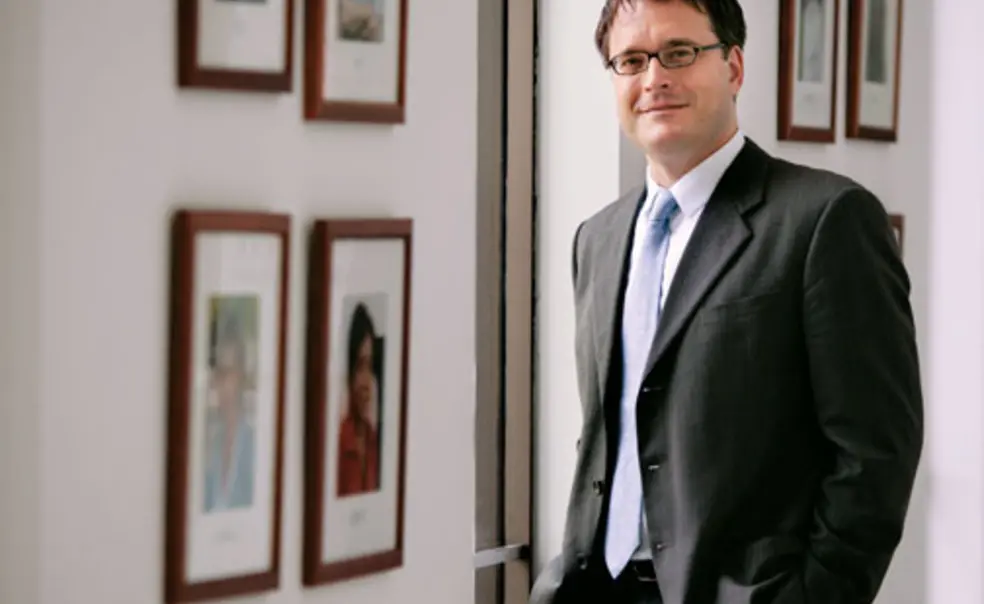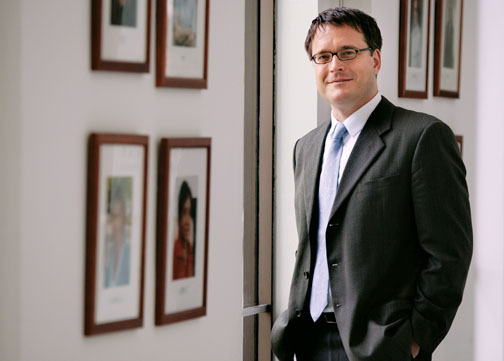IDEAS: Feeling partisan? Don't fault Fox News
We often hear that political partisanship is on the upswing, with Congress deadlocked because of deep splits between left and right and the electorate seemingly divided into hostile camps.
Cable television often is blamed, and, more recently, the Internet. It’s become a truism that Fox News and MSNBC, in particular, have helped make Americans more polarized.
But political scientist Markus Prior casts doubt on this premise. An associate professor of politics and public affairs in the Woodrow Wilson School and co-director of the Center for the Study of Democratic Politics, Prior has spent several years studying the effects of partisan media. The influence of Fox News, he concludes, has been exaggerated — and the same is true for other more-or-less extreme outlets on both left and right. We need to look elsewhere for the wellsprings of polarization, he says.
Prior shows that fewer citizens consume partisan media than usually is thought. In a recent article in the Annual Review of Political Science — which builds on his 2007 book Post-Broadcast Democracy: How Media Choice Increases Inequality in Political Involvement and Polarizes Elections — Prior uses Nielsen ratings to show that partisan media such as Fox or MSNBC reach only 10 or 15 percent of American voters, not enough to make a huge difference in national attitudes. “Most voters are centrist,” he says, “and most avoid partisan media.” Those few who do watch were polarized to begin with, he adds.
So what accounts for the increasing polarization we have seen in recent elections? Prior points to a different culprit: the explosion of media outlets and the exit of many moderates from the political process. Back in the 1970s, a great many more Americans paid attention to politics and bothered to vote — because, Prior argues, they regularly were watching network news.
But no longer, he says: In today’s media-rich environment, these middle-of-the-road types need never watch the news at all — and they typically don’t because of myriad entertainment options. At the same time, many moderates have quit voting out of disinterest. “So you are left with more supporters of the two extremes,” Prior said.
Hence the polarization we see, as moderates abandon the political process, turning the field over to ideologues who still care enough to vote. Never especially interested in politics, moderates now show virtually no interest at all, being busy consuming entertainment, not news. “Proliferation of media choices lowered the share of less-interested, less-partisan voters,” Prior concludes, “and thereby made elections more partisan.”













1 Response
Alfred Litwak ’56
10 Years AgoThe Causes of Polarization
Writer W. Barksdale Maynard ’88, in his piece “Feeling partisan? Don’t fault Fox News” (Campus Notebook, July 10), provided some interesting insights into the mindset of contemporary academia. Maynard tells us that associate professor Markus Prior believes that the country has become more polarized politically not because partisan media like Fox News have gained viewers, but because established network-news channels have fewer than in the past. We are left to infer (as are, presumably, his students) that those network outlets are nonpartisan, fair, and balanced in their news coverage — that despite a mountain of evidence showing that those who work for network-news channels are, by far, more likely to be left-leaning or Democrat than Republican. With fewer voters relying on what he seems to see as nonpartisan, established sources, Professor Prior believes, voter turnout becomes highly polarized.
I wonder if he would concede that polarization might somehow be related to a president who is determined to “fundamentally transform America,” while many Americans treasure their country’s founding principles and are equally determined to defend them against radical transformation. I also wonder if, in Professor Prior’s opinion, faculties in higher education also are fair and balanced in their political leanings.